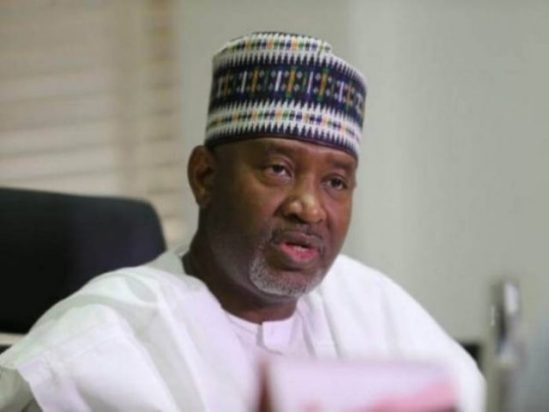The Federal Government has allayed the fears of the Federal Airports Authority of Nigeria (FAAN) workers of any lay-offs as plans to concession four major international airports in the country get underway.
Aviation minister Hadi Sirika gave the assurance at a virtual meeting with aviation stakeholders in Lagos on Wednesday on the concession update of the airports.
Sirika said that the concession would instead allow for more hands to be engaged as most of the airports were under staffed.
The airports billed for concession are: the Mallam Aminu Kano International Airport, Kano state and the Murtala Muhammed International Airport, Lagos state.
Others are the Port Harcourt International Airport, River and the Nnamdi Azikiwe International Airport, Abuja.
The minister informed the stakeholders that the country’s asset would not be sold off but given out on concession in order to modernise the airports.
He added that this would allow the airports to be operated in a way to create more jobs as well as generate more revenue for the country.
“We will not sell the assets that belong to over 200 million Nigerians and the future generation of this country.
“We are not going to sell because those that were sold were lost. So, we in government believe that we should hold those assets for the Nigerian people in trust.
“We must make those assets better to provide the services that are needed. So, we said, rather than sell outrightly, we will concession.
“In other words, we would give it up to someone who would operate them and make them better.
“We will then get more money, the people will enjoy better services, the industry grows and after a certain time, the airports will come back to us,” he said.
The minister further explained that the airport terminal buildings to be given out on concession would generate their revenues from non-aeronautical resources.
He said that all other facilities at the airports and existing concessions, outside the airport terminals, would still be managed by FAAN.
He added that the concessionaire would sign service level agreements for runway, taxiway, security and air traffic Management with FAAN and NAMA to ensure that the airport operated efficiently.
The minister also said that the concessionaire would provide the investment required to upgrade the existing terminals.
He added that they would also take over the maintenance of new terminals over a period of time, based on the financial assessment of each transaction.
Sirika said that existing concessions within the terminals, however, would be inherited by the concessionaire and allowed to run their course before any review.
The minister said that tariffs would be regulated in accordance with the procedures set out in the concession agreement.
He explained that the Passenger Service and Security Charges would be paid directly to FAAN by IATA and shared by the concessionaires and FAAN.
He pointed out that the airport authority would be required to provide manpower, through AVSEC, for the security of both the airside and landside.
The concessionaire would similarly be expected to provide and maintain landside equipment which would allow FAAN continue to provide and maintain airside security equipment, the minister said.
Sirika noted that airports in the country were currently operating in a sub-optimal environment and needed improvements that would be provided through the participation of the private sector.
He said that private sector participation would have impact especially in infrastructure investments, runway maintenance, navigation aids as well as investment in terminal facilities.
He added that with the increasing population, a private operator of the four main airports would run them based on international standards and expand the facilities, in accordance with traffic demands at each of the airports. (NAN)

